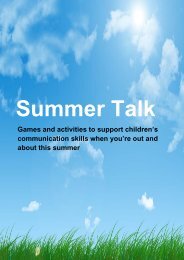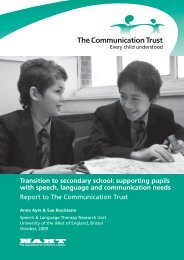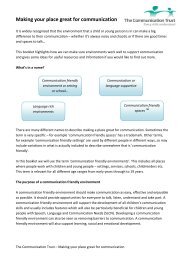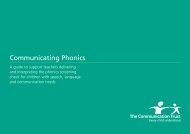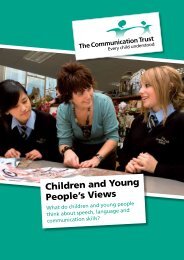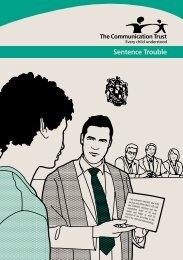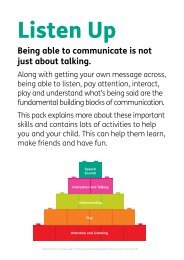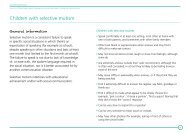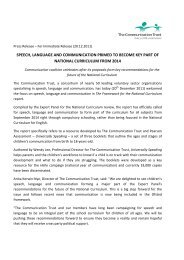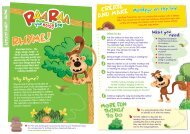Don't Get Me Wrong - The Communication Trust
Don't Get Me Wrong - The Communication Trust
Don't Get Me Wrong - The Communication Trust
Create successful ePaper yourself
Turn your PDF publications into a flip-book with our unique Google optimized e-Paper software.
George<br />
George is 11 years old, is high-achieving at school and particularly good at maths.<br />
He can be extremely talkative, though it can be difficult to follow his conversations,<br />
as he assumes the listener already knows what he is talking about. He often does<br />
not stick to the topic of conversation or will talk<br />
a lot about what he is interested in, giving lots<br />
of very minute detail. He does not look at<br />
people when he is talking or listening. When<br />
he is speaking there is very little expression in<br />
his voice. George often takes things very literally,<br />
when his teacher asked George, can you<br />
shut the door please?’ he responded<br />
‘Yes’ as he did not understand his<br />
teacher wanted him to actually shut<br />
the door. He does not understand idioms<br />
such as ‘as high as a kite’ or ‘at the drop of a hat.’<br />
<strong>The</strong> effect of these speech, language and<br />
communication needs<br />
George is happy to talk with others, though he is not<br />
always successful and he really struggles to make and<br />
keep friends.<br />
What helps George<br />
When people say things like ‘Sorry I don’t know<br />
who you mean’ and when they explain what<br />
idioms mean, for example ‘get a grip’ means<br />
‘calm down’. It also helps him when people<br />
explain what facial expressions mean, for<br />
example when his teacher says ‘Ben looks<br />
bored, did you talk too much?’<br />
Don’t <strong>Get</strong> <strong>Me</strong> <strong>Wrong</strong> 21




